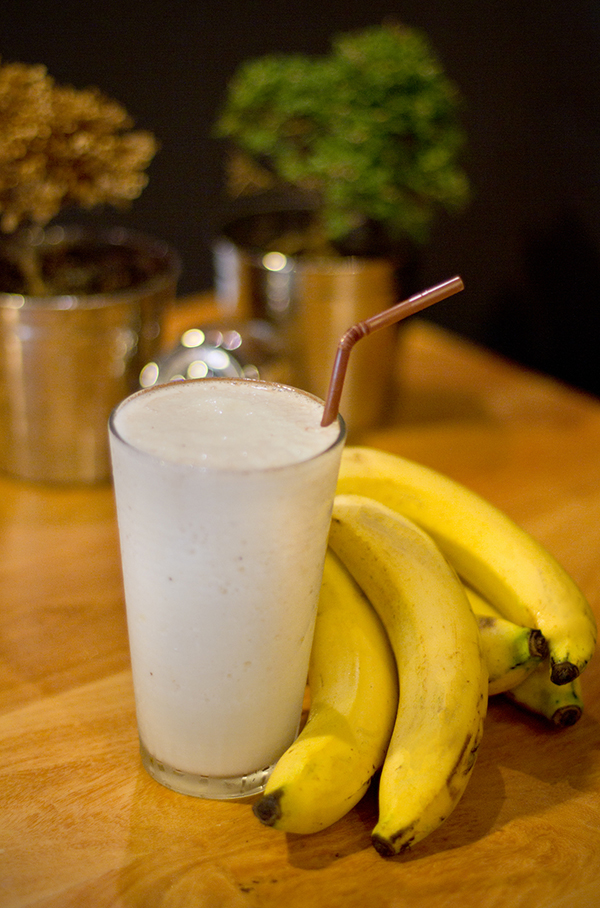By Shoshana Pritzker
How do you like your coffee? Black? With cream and sugar? Or how about some frothy milk? A perfect brew is one that is exactly the way you like it. Whether first thing in the morning or as an after-dinner treat, your favorite cup-o-Joe is always warm and inviting.
But Cafenistas beware – there’s more than meets the eye, brewing in your coffee pot. Now more than ever, studies are popping up from all corners of the globe touting the hefty list of health benefits found in your favorite brew. Not only is your morning cup providing you with a needed energy boost; it’s also (whether decaf or not) loaded with polyphenolic compounds and cancer-fighting agents. It lowers the risk of cardiovascular disease, stroke, liver toxicity and even more exciting is its ability to decrease risk of developing type 2 diabetes. After all that, we can’t forget the added benefit of coffee’s positive effect on metabolism, weight control and performance enhancement aspects on and off the field. The next time you question ditching your coffee break, think again. Drink up for your health!
Top Source of Antioxidants
Believe it or not, Americans are still getting the majority of their antioxidants from beverages rather than fruits and vegetables – with coffee leading the race. According to the National Coffee Association of USA, Inc. 54 percent of adult Americans drink coffee daily, with 83 percent of those coffee drinkers moving to their home brew. With this economy, it’s quite a bit cheaper and far less time-consuming to purchase a coffee pot and a bag of your favorite roast than it is to stop at the local Starbucks or 7-Eleven every morning.
Americans consume a total of 400 million cups of coffee per day. Individually, an American coffee drinker consumes about three cups of coffee per day. I’d say it’s a good thing; enjoying your java is a stress reliever as well as health booster.
The high antioxidant activity in coffee comes from its rich source of polyphenols.1,2 Polyphenols act as antioxidants in the body, playing a role in the protection of the cell against free radical damage and tissue damage from reactive atoms. This may be best defined or demonstrated by the action of soy isoflavones on estrogen receptors and the effects on the endocrine system.
Bone resorption is stimulated by low levels of calcium in the body (as in post-menopausal women), releasing parathyroid hormone that (among other activities) increases the number of osteoclasts in the body (think of osteoclasts as eating away at your bone density) promoting bone resorption, leading to osteoporosis. Soy isoflavones have potent antioxidant properties, improving thyroid function and protecting against bone loss.3 More research is needed to define the exact mechanism of action of soy isoflavones and their antioxidant properties.
The polyphenols found in coffee are almost entirely chlorogenic acid (100-200 mg per cup), which have a range of activities that may have a role in improving health.4 The method in which you prepare your coffee may change the polyphenolic properties of your beverage; however, the final beverage is still consistently very high in polyphenols. Whether you go for instant, steeped, boiled or drip-brewed, merely consuming coffee daily is what makes a difference in your health.
Cancer Risk, Liver Disease and Risk of Stroke in Women
All of those polyphenols are put to good use in terms of prevention of cardiovascular disease, cancer, stroke and liver disease. The rumor that coffee drinking protects against liver damage was put to the test when 9,849 participants were followed in a study published by the journal Gastroenterology to determine whether there was a relationship between coffee consumption and the risk of hospitalization and even death in chronic liver disease (CLD) patients. Participants who drank >2 cups of coffee per day had less than half the rate of CLD as those who drank <1 cup per day.5
In a separate study, drinkers of three or more cups of coffee per day had 53 percent lower risk of liver disease progression than non-coffee drinkers; coffee may also protect against developing liver disease.6 Coffee’s actions reducing oxidative stress may be a key component in hepatic (liver) damage and disease progression.6
In a review of “Recent Human Research on Coffee and Health,” authors Higdon, J.V. et al. concluded that overall, there is little evidence of health risks and some evidence of health benefits for adults consuming moderate amounts of coffee (3-4 cups per day, providing 300-400 mg per day of caffeine). The results of numerous studies report that coffee consumption may help prevent several chronic diseases, including type 2 diabetes, Parkinson’s disease and liver disease. More studies need to be done to observe the relationship between coffee consumption and cancer risk; however, the high polyphenol properties of coffee have cancer-protecting effects on the body.6,7 Additionally, women who regularly consume coffee have a lower risk of stroke than non-consumers.8 The proof is in the pudding ladies; coffee’s got it going on!
Weight Control, Type 2 Diabetes and Exercise
Returning back to coffee’s high polyphenolic content, chlorogenic acid may increase insulin sensitivity, inhibit glucose absorption, and moreover neutralizes the destructive effects of free fatty acids over the function of beta cells (cells in pancreas that make and release insulin) in insulin-resistant overweight individuals.9,10,11,12 This is good news for those with type 2 diabetes mellitus looming overhead. These studies suggest that long-term coffee consumption, regardless of caffeine content, can reduce the risk of type 2 diabetes mellitus. Suggested intake is around four cups of coffee per day.
Not only will coffee keep you warm on a cold winter’s night, but it’ll also increase your body’s ability to burn fat by inducing thermogenesis and increasing skin temperature.13 Thermogenesis is the rate at which our body uses heat to produce energy. Diet-induced thermogenesis is nice because you don’t have to do anything but eat or drink any particular food item and your body will begin burning calories. Some foods and drinks induce thermogenesis at a much higher rate than others. Coffee happens to be one of them.
The most exciting use for coffee is its ability to boost performance during exercise and other sports. A double-blind, placebo-controlled, randomized trial by the University of Alabama was performed, where researchers evaluated and compared the effects of a nutritionally enriched coffee drink and a decaffeinated coffee drink on repeated flying 40-yard sprint performances. Results indicated that a caffeinated coffee beverage pre-workout can enhance sprint performance by possibly delaying fatigue, meaning you can train harder and longer with a lower perceived exertion.15
Is it the caffeine or the coffee that works in this situation? Most likely, the caffeine is the ergogenic aid; however, using coffee pre-workout rather than your sugar-laden energy drink is the less expensive option, while still providing the same performance benefits. Next time you’re headed to the gym, try The Power Lift recipe below; it’s a delicious pre-workout coffee treat.
From one coffee lover to another, your favorite drink is sure to be the healthiest; from its astounding polyphenolic antioxidant activity to its use in exercise, weight loss and diabetes control. Take it one step further; forego the cream and sugar and replace it with honey or other alternatives to enjoy this awesome beverage daily and reap the benefits. Just be careful not to burn your tongue!
The Power Lift
Ingredients:
2/3 cup brewed coffee, cold or at room temperature
1.5 scoops vanilla whey protein powder
½ medium ripe banana, peeled and sliced
2-4 ice cubes
½ tablespoon wheat germ
½ tablespoon honey, or to taste (artificial sweetener can be used in replace of honey)
Place all ingredients in a blender container. Cover, and blend on high for 1 minute or until smooth. Serve immediately.
(This recipe was derived from coffeescience.org, but was changed for nutritional adequacy.)
References:
1. Ohie, Y.T. et al. (2009). Coffee and green tea as a large source of antioxidant polyphenols in the Japanese population. J Agric Food Chem, 57(4):1253-9.
2. Ho, W.Y. (2009). Polyphenolic chemistry of tea and coffee: a century of progress. J Agric Food Chem, 57(18):8109-14.
3. Scalbert, A. et al (2005). Polyphenols: antioxidants and beyond. Amer J Clinical Nutr, 81(1):215S-217S.
4. Hodgson, J.M. et al. (2004). Phenolic acid metabolites as biomarkers for tea- and coffee-derived polyphenol exposure in human subjects. British J of Nutr, 91(1):301-305.
5. Ruhl, C.E. et al. (2005). Coffee and tea consumption are associated with a lower incidence of chronic liver disease in the Unites States. J of Gastroenterology, 129(6):1928-36.
6. Freedman, N.D. et al. (2009). Coffee intake is associated with lower rates of liver disease progression in chronic hepatitis C. J of Hepatology, 50(5):1360-1369.
7. Higdon, J.V. et al. (2006). Coffee and Health: A Review of Recent Human Research. Food Sci and Nutr, 46(2):101-123.
8. Garcia, E.L. et al. (2009). Coffee consumption and Risk of Stroke in Women. J of Amer Heart Assoc, 119:1116-1123.
9. Pimentel, G.D. et al. (2009). Does long-term coffee intake reduce type 2 diabetes mellitus risk? Diabetology & Metabolic Syndrome, 1:6.
10. Oba, S. et al. (2009). Consumption of coffee, green tea, oolong tea, black tea, chocolate snacks and caffeine content in relation to risk of diabetes in Japanese men and women. British J of Nutr.
11. Van Dieren, S. et al. (2009). Coffee and tea consumption and risk of type 2 diabetes. Diabetologia, 52:2561-2569.
12. Greenberg, JA et al. (2006). Coffee, diabetes, and weight control. Am J Clin Nutr, 84(4):682-93.
13. Tagliabue A et al. (1994). Coffee induced thermogenesis and skin temperature. Int J Obes Relat Metab Disord, 18(8):537-41.
14. Fukushima, Y. et al. (2009). Effects of Coffee on Inflammatory Cytokine Gene Expression in Mice Fed High-Fat Diets. J Agric Food Chem, [Epub].
15. Davis, J.K. et al. (2008). The effects of a nutritionally enriched coffee drink on repeated flying 40-yard sprint performance. J Int Soc Sports Nutr, 5(1):1.










